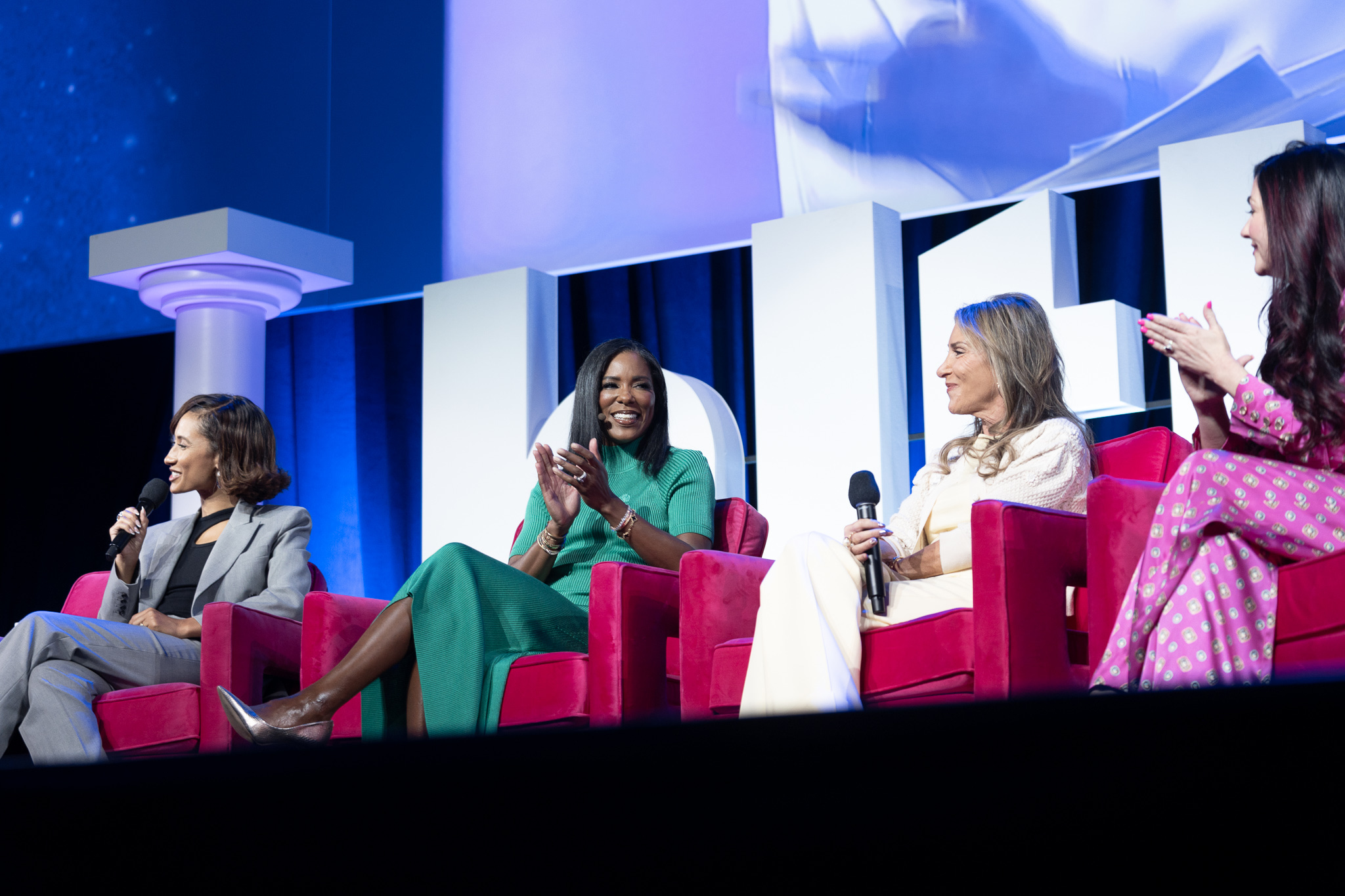
Women’s health took the main stage at the HLTH Conference in Las Vegas on Monday.
During a panel discussion, moderator Jodi Neuhauser, founder and CEO of 51&, detailed how the women’s healthcare system is broken. For example, there is only one menopause provider for every 3,000 women. Less than half of counties in the U.S. have an OBGYN. Women’s healthcare is also reimbursed less than men’s healthcare.
To the panel, Neuhauser proposed this question: Who is not working in women’s health today that should be?
One panelist pointed to employers, arguing that they should expand women’s health benefits, such as midwifery care.
“We’ve seen it with fertility, IVF. We’ve seen these benefits expanding,” said Elaine Welteroth, founder of birthFUND, which advocates and invests in midwifery care. “We want to make sure that employers see themselves as part of the solution, especially as so many people are losing healthcare and … the safety nets we had are falling to the wayside. Imploring employers to see themselves as being able to step up and step into those gaps, I think, has never been more urgent than now.”
Cindy Eckert, CEO and founder of Sprout Pharmaceuticals, agreed with this, noting that employers need to demand that insurers cover drugs that are FDA-approved for female patients. Sprout Pharmaceuticals is focused on breakthroughs in women’s sexual health.
“It is absurd what is happening in terms of an [erectile dysfunction] medication being covered, but other things not,” she said. “The vasectomy being covered, but not the miscarriage. That cannot continue. And employers have immense power in that conversation.”
Eckert added that the media needs to be more “thoughtful” in how they report women’s health issues. When it comes to men’s health products, the media often leads with the benefits but downplays the risks. With women’s health products, the media leads with the risk, she declared. By doing this, “we are manipulating that conversation and manipulating the data,” she said.
Another panelist argued that more men should be stepping up to advocate for women’s health.
“We need more men to really look at it from an empathetic perspective and have compassion for the other people in my life, or my workforce, or whatever it is. … Especially because we do live in a society where men typically are in the leadership positions of all these different sectors,” said Dr. Jessica Shepherd, chief medical officer of Hers, a direct-to-consumer company for women’s health and personal care.
Shelley Zalis, CEO and founder of The Female Quotient, echoed this, noting that there’s such a thing as “man-opause.” Men start losing testosterone at the age of 30. The Female Quotient is a global community of women in business.
Photo: HLTH Inc.




